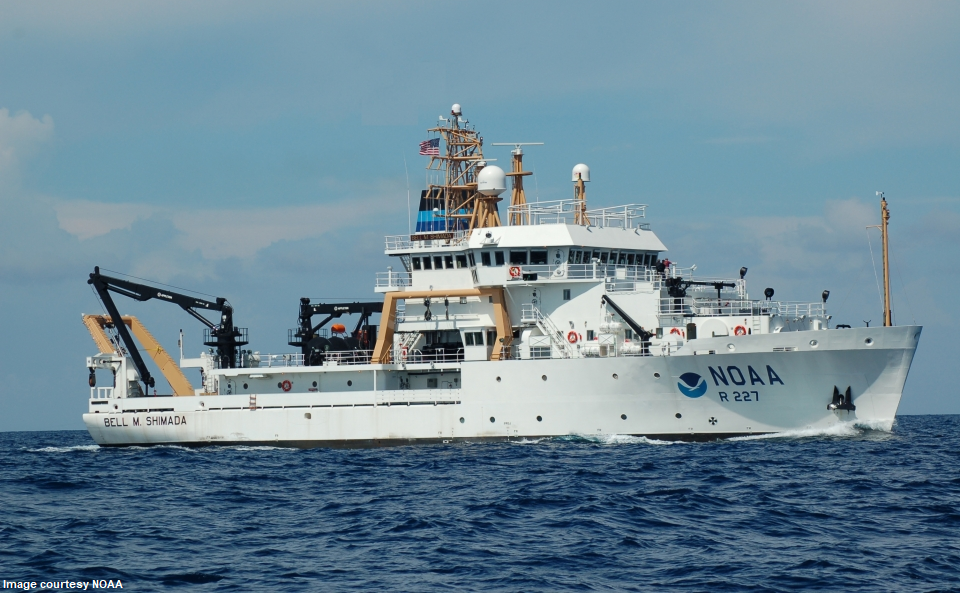 Everyone knows that salmon begin their lives far upstream in rivers, travel downstream to live for years in the open ocean, then return to the remote stream where they were born in order to spawn. We know what salmon do when they head downstream and when they head upstream, but what actually goes on in the years that pass between is mostly a mystery, or as one marine biologist put it, a “black box” – referring to a system that can only be viewed by its input and output.
Everyone knows that salmon begin their lives far upstream in rivers, travel downstream to live for years in the open ocean, then return to the remote stream where they were born in order to spawn. We know what salmon do when they head downstream and when they head upstream, but what actually goes on in the years that pass between is mostly a mystery, or as one marine biologist put it, a “black box” – referring to a system that can only be viewed by its input and output.
Discovering the mysteries of the sea is one of the things Oregon’s marine scientists are famous for, and Laurie Weitkamp of the Newport Research Station of the National Oceanic and Atmospheric Administration Northwest Fisheries Science Center is going to be spending months at sea aboard the Bell M. Shimada as part of a multinational project to try to learn the secrets of the briny part of salmon life in the Pan-Pacific Winter High Seas Expedition as part of the International Year of the Salmon.
Worldwide salmon populations are declining rapidly. The fact that commercial salmon catches are declining and the livelihood of salmon fishing crews is threatened creates a sense of urgency for national governments, but globally it’s one of the smallest of all the bad things that declining salmon populations hint at: an ocean that has trouble supporting salmon is probably not a healthy ocean, and an Earth without a healthy ocean is not a healthy planet.
One of the few things that Weitkamp and her colleagues are fairly sure about is that one cause of salmon decline is rising ocean temperatures – and yes, they’re in no doubt that global temperatures are rising.
The warm ocean “Blob” of 2014 – a warm pool of water that stretched from Alaska to Mexico – which had been thought to be an anomaly has recurred and seems likely to recur more often. Video footage from inside last Summer’s “heat-dome” clearly showed ocean-going salmon under stress due to having to inhabit abnormally warm water. Conditions were extremely good for salmon this January, but obviously neither salmon nor species who depend on salmon nor people can count on that sort of luck holding. One good season for salmon smolts won’t make up for bad runs like last Summer’s record low run of steelhead.
The changing climate has also led to menaces to the salmon native to Oregon’s rivers, such as the horde of American shad that moved into the region in response to changing weather patterns.
Altogether, the Shimada expedition and the Year of the Salmon have their work cut out for them if they are to increase human understanding of how salmon live and allow us to shape our relationship with the immense Pacific Ocean in such a way that it will still be a fit home for salmon, and salmon will still return to Oregon rivers.
By John M. Burt
Do you have a story for The Advocate? Email editor@corvallisadvocate.com

